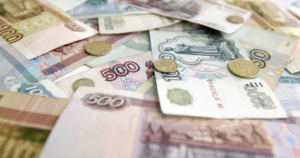
Currency controls grow as Russia defends ruble

Before ‘locking’ people’s foreign currency in their accounts this week, the Central Bank forced banks to set rates of up to 20 percent on ruble accounts, and advised imposing early termination fees for new foreign currency deposits. Since the beginning of the ‘special military operation’, the following currency controls have been imposed:
- Withdrawals from foreign currency accounts are limited to $10,000 in cash until September 9. Withdrawn funds will be issued in dollars, regardless of the currency in which the account is denominated. Any funds requested beyond the $10,000 limit will be released in rubles based on the exchange rate on the day of the transaction.
- Funds in foreign currency deposited in a Russian bank account after March 8 cannot be withdrawn in cash.
- You cannot wire more than $10,000 (or equivalent foreign currency) out of Russia.
- A ban on any transactions involving residents loaning foreign currency to non-residents.
- A 12 percent commission on buying foreign currency on the stock exchange. There is also a ban on cashing foreign currency held in brokerage accounts.
The situation is further complicated by the fact that payments firms Visa and Mastercard have left Russia. Now, Russian-issued Visa and Mastercard cards only work inside the country. Cross-border transactions are no longer available, making it impossible to use Russian-issued cards to pay for purchases on foreign websites. For example, this makes it impossible to use Visa or Mastercard to make purchases from the App Store or Google Play.
A statement from The Bell: The risks for journalists working in Russia are extremely high as a result of a new law that punishes the spread of ‘fake news’ with up to 15 years in jail. As Russian officials refuse to describe events in Ukraine as a ‘war’, preferring the term ‘special military operation’, we believe we can no longer safely cover events in Ukraine. As a result, we’re halting all direct coverage of Russia’s ‘special military operation’ until further notice — although we will continue to report on its far-reaching economic, political and social consequences. If you notice that we’re being circumspect about our language — you’re right. We are. We believe it’s the only way to protect our journalists.




